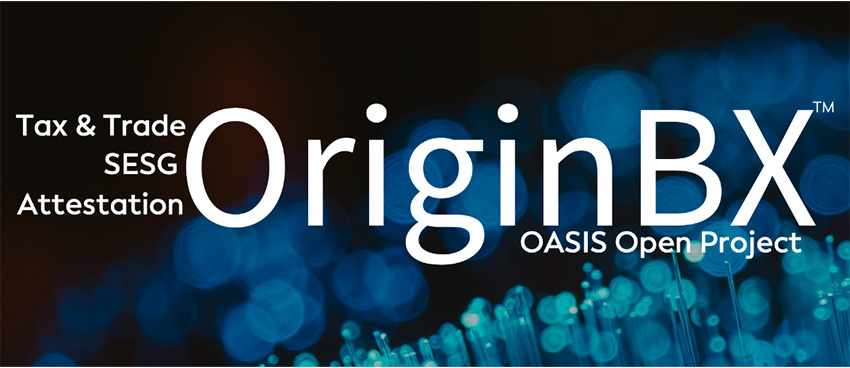OriginBX, a nonprofit organization looking to standardize how detailed product data is shared for tax and trade compliance in cross-border commerce, including ways to ensure ethical sourcing by avoiding goods produced using forced labor, will soon publish version one of its standards.
So-called trade attestation, documenting the veracity of information on goods in cross-border commerce, has become increasingly important to verify metrics related to use of forced labor as well as environmental risks, deforestation and free trade agreement requirements.
Regarding the issue of forced labor in manufacturing, U.S. Customs and Border Protection held a two-day Forced Labor Technical Expo in March. It featured 19 industry presentations from Sweden, Germany, Canada and the U.S., with participants from industry, government agencies and foreign governments, covering the latest technologies for supply chain transparency and securing the flow of goods.
At the event, CBP unveiled its interactive dashboard focused on forced labor enforcement statistics under the Uyghur Forced Labor Prevention Act (UFLPA).
OriginBX’s initial standard will deal with digital sharing of product details in technology and electronics. Following will be iterations covering retail, apparel and footwear, minerals and mining, life sciences and automotive. Further down the road, OriginBX is working with the World Customs Organization, an independent intergovernmental group, with the aim of having its standard adopted into the WCO’s data model (WCO DM) for global trade data interoperability.
Current and former sponsors of OriginBX, which was founded in 2021, include Amazon, Accenture, Intel, KYG Trade, Mitsubishi, Pinary, SKU Chain and Origin Experts Group. It’s a project under the auspices of the Organization for the Advancement of Structured Information Standards (Oasis Open), a 30-year-old entity which helps bring standards projects to fruition.
Todd Smith, founding chairman of OriginBX and CEO of KYG Trade, a trade attestation platform and marketplace for cross-border commerce, said version 4 of the WCO DM was recently released. It’s a standardized message set in XML used by all WCO members. Until 18 months ago, it was only available to customs agencies but has since been made public. Smith said the data model has many benefits for ensuring things like trade attestation, i.e., ensuring accurate information about the exchange of goods, but it lacks a message set for product attributes.
Smith said detailed product data in importing and exporting is also needed to determine and support things like Harmonized Tariff Schedule (HTS) code adherence, country of origin and ESG attestations. But it’s often shared by archaic forms like emails, spreadsheets and PDFs, an archaic process that takes weeks and is redundant and costly.
“We’re creating a registry based on distributed technology with no single owner, and not controlled by any user group or country,” Smith said. “It becomes not only the standard message set for product information, but we’ve expanded the scope and charter to cover legal entity identifier (LEI) data. Companies need to make sure they’re dealing with the same banks, customs organizations, the right legal entity in each geography. Our standard will accommodate any LEI number.”
There are various LEI standards from organizations like GS1 and LEI Worldwide, Smith said, but they can be pricey to participate in for smaller organizations.
Tejo Kusuma, a technical officer with the Procedures and Facilitation Sub-Directorate within WCO, said there have been preliminary conversations with Smith and OriginBX about its standardization effort, in order to understand the potential for linkage with the WCO DM. But it would have to go through a rigorous review and approval process by WCO’s Data Model Projects Team.
“The WCO DM is a data standardization framework for customs processes such as import, export and manifest declarations,” Kusuma said. “In our data model, there is a level of detail regarding individual goods normally specified in a customs declaration. OriginBX offered a bit more granularity and detailed product information when it comes to the composition of goods. The conversation is continuing and there is potential benefit for customs administrations that can be unlocked with that kind of detail.”
“While we find potential value with OriginBX, we as the WCO can’t endorse it as a potential solution,” said Brendan O’Hearn, Deputy Director of Compliance and Facilitation at the WCO. “What we could do is show our members how they can use and benefit from the proposed standard, using the WCO DM as a conduit through which to send that data.”

